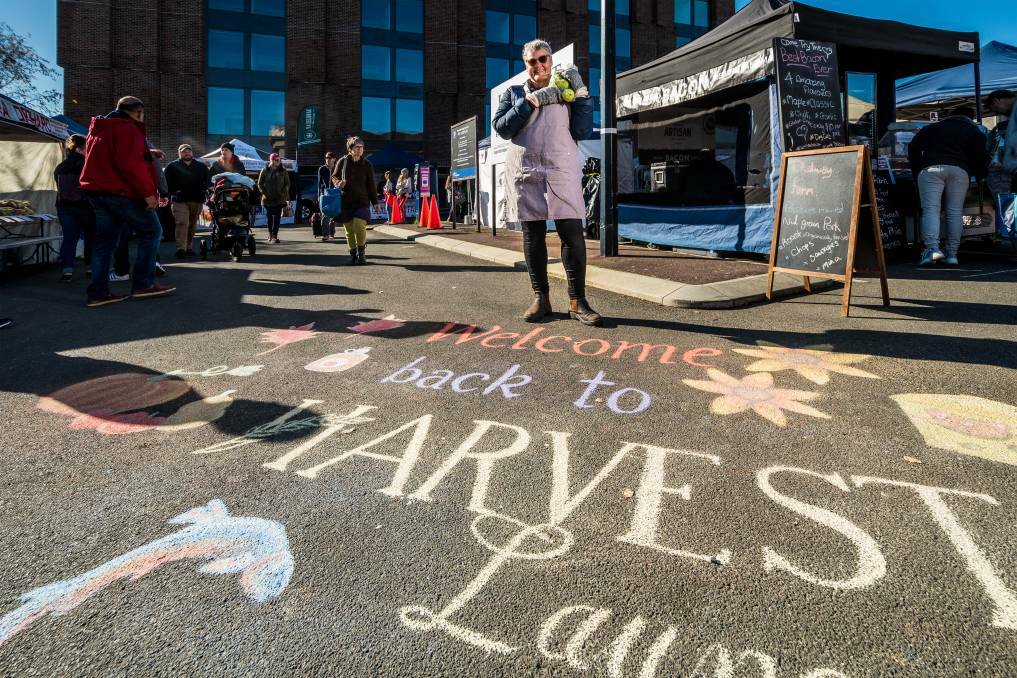
Tasmania is more than pulling its weight with organic
and sustainable food production, according to the most recent market research report by Australian Organics. Concerns remain over how modifications to industry regulations might impact smaller producers. In January the Agriculture, Water and the Environment Department introduced an Organic Industry Advisory Group to check out Australia’s regulatory system for
organic produce. Contributing$ 2.6 billion to the economy every year and growing, organic food is big service.
According to a DAWE representative, Australia is well put to capitalise on the global natural markets, and by doing so is assisting the agricultural market achieve its target of $100 billion by 2030.
IN OTHER NEWS:
Tasmania’s typical natural farm is the smallest land area per certified operation in Australia. According to the 2019 market research report, this pattern shows Tasmania’s focus far from standard farming commodities, instead going for small scale farming of natural fruit and vegetables
From the roadside “honesty system” kitchens scattered around the countryside, to the ever-popular weekend farmers markets, Tasmanians love supporting little, local producers.
Launceston’s Harvest Market is a weekly pilgrimage for lots of in the community keen to buy fruit and vegetables as close to the source as possible.
Harvest manager Kim Hewitt understands of numerous market stall holders who farm in a biodynamic or natural way, frequently going “above and beyond what natural certification needs”.
She stated typically these producers were too small to achieve certification – a procedure which can be both expensive and lengthy.
While Ms Hewitt supports a tightening up of policies for huge producers, she has concerns that sweeping changes may adversely impact the tiniest producers.
“I support any changes that will tighten up the labelling of organics and decrease the amount of greenwashing, but when it’s being driven by peak bodies, I wonder if any consideration is offered to those really little manufacturers who practice organic farming practices, but can’t get certified due to the fact that they just can’t afford it,” she said.
Andy Jackman, of Red Cow Organics, is likewise not sure if regulatory modifications ought to be the focus.Red Cow Organics is a qualified natural dairy from Oldina in the state’s North-West. Ms Jackman has been pleased with the process of organic accreditation, but thinks that education is key to the ongoing success of the natural food market.
The recommendations from the Organic Industry Advisory Group are yet to be released.
Our reporters strive to supply regional, current news to the community. This is how you can continue to access our trusted content:
- Bookmark www.examiner.com.au
- Make sure you are registered for our breaking and regular headlines newsletters
- Follow us on Twitter: @examineronline
- Follow us on Instagram: @examineronline
- Follow us on Google News: The Examiner
This content was initially released here.
In January the Agriculture, Water and the Environment Department released an Organic Industry Advisory Group to look into Australia’s regulatory system for organic produce. Harvest supervisor Kim Hewitt understands of numerous market stall holders who farm in a biodynamic or natural manner, typically going “above and beyond what natural certification needs”. “I support any changes that will tighten up the labelling of organics and decrease the quantity of greenwashing, but when it’s being driven by peak bodies, I wonder if any factor to consider is provided to those really small manufacturers who practice organic farming practices, however can’t get accredited because they just can’t manage it,” she said. Ms Jackman has been pleased with the procedure of natural certification, but thinks that education is essential to the ongoing success of the natural food market. Image: File”class =”lead-image __ image responsive “src= “https://www.examiner.com.au/images/transform/v1/crop/frm/132434875/a95a2d4a-c4c3-492f-95c4-a64594e572c7.jpg/r0_0_1017_678_w1200_h678_fmax.jpg”title=”ORGANIC: Kim Hewitt, manager of Harvest Market states numerous market stalls go above and beyond what organic certification needs.




















